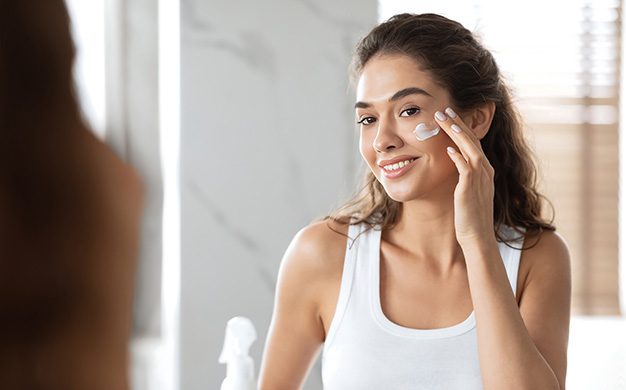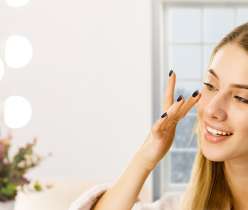Regarding our skin care regimen, aren’t we looking for that special magic ingredient that will leave our skin radiant and youthful? Unfortunately, magical ingredients don’t exist. But you can still achieve magnificent results with one skincare wonder.
A low-concentration cream is a great option if you are a retinol beginner and don’t know where to start. But before you do, check what top dermatologists pick.
Read on to learn what exactly retinol is, how to use it to attain the best results, the do’s and don’ts of applying the product, and everything else you need to know about this dermatologist’s best skin care wonder.
What is Retinol Cream?
If you are already familiar with retinol, they are vitamin A derivatives known for their ability to smooth and reduce the appearance of fine lines, brighten and even out skin texture, making your skin look clearer over time.
This is because they expedite skin cell turnover, which helps you get rid of dead skin faster, strengthens the skin’s barrier, and enhances collagen production. Collagen is required to maintain the elasticity of your skin.
What are the Benefits of using Retinol?
Most dermatologists recommend retinol formulations with surprisingly few caveats. It is suggested that with patience, commitment, and the right skin care skincare routine, people of all skin types could benefit from using retinol.
Retinol may be of particular use for anyone embarking on a skin rejuvenation journey in which they are looking to reduce the appearance of brown spots and hyperpigmentation, address breakouts or wrinkles, decrease the effects of sun damage, or prevent future signs of wrinkles.
So, whether you want to calm your acne-prone skin, even out your skin tone, or find a skin care agent that will provide effective exfoliation, a retinol cream just be what you are searching for.
Make sure you use sunscreen or a moisturizer with an SPF while using a retinol formulation, as retinol can irritate your skin, causing side effects such as itching, redness, dryness, and increased photosensitivity.
Most of the time, these side effects subside once you build a tolerance to irritating skincare ingredients, which means your skin probably needs an adjustment period before you see results.
Retinol for Different Skin Types
-
- For Dry Skin
A retinol cream may be a better option if you have dry or sensitive skin. Creams are thicker and better for dry or mature skin. In addition, the specific product you use will naturally depend on your personal preferences. Still, the cream is undoubtedly less irritating for sensitive skin types and delivers the result you expect with retinol.
-
- Oily Skin or Acne-Prone Skin
People with oily skin or more likely to get acne may opt for lighter weight formula, like a gel. Provided that these products come with low retinol concentrations, say 0.25% to 0.01%. According to the dermatologist, the lower the concentration, the more tolerable and less irritation. Whether you are choosing a cream or a gel formulation, it could take up to 3 to 12 months of regular usage to notice visible changes in your skin.
Also Read – 5 Foods to Eat to Avoid Oily Skin
The Best Retinol Creams
According to dermatologists, the best retinol creams on the market now and that have highly regarded as recommendations to share are Retino A cream (0.025%,0.05%, 0.01%), A Ret gel (.025%, 0.05%, 0.01)
Retino A cream (tretinoin cream) – Retino A cream contains the active substance tretinoin in a cream base. Tretinoin is a prescription retinoid that is considered the gold standard in dermatology. It is both a short-term solution and a long-term treatment option for clearing up acne breakouts.
Tretinoin is the best medicine for pimples and dark spots. It is effective for hard-to-clear acne blemishes on your skin. The cream is effective for many people but doesn’t suit everyone. Therefore, it is best to consult a dermatologist before buying a Retino A cream. Tretinoin has been extensively studied for its impact on the visible signs of ageing. Its regular application also decreases the appearance of acne scarring.
A Ret gel (tretinoin Gel) – A Ret gel is a gel-based tretinoin formulation used to treat acne. And other skin conditions like ageing and hyperpigmentation. It helps in staying clean and clear of excess oil, bacteria, and dirt that typically contribute to acne in the first place.
Conclusion
One of the reasons why dermatologists love retinoid is because it is multifunctional. Retinols/retinoids treat skin concerns like acne, fine line, and hyperpigmentation.
Whether dealing with one skin problem or all three, prescription Tretinoin formulations such as Retino A cream or A Ret gel could be a great fit for you; if you want to use a retinoid formulation to reduce and treat acne, please consult a dermatologist.



